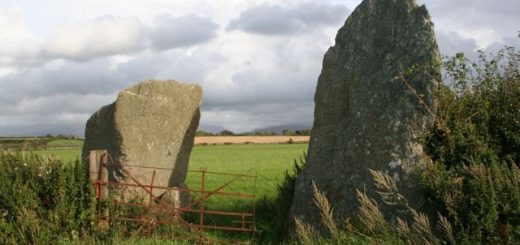At what point does healthy skepticism become cynicism?
It is important to employ a healthy degree of skpeticism when dealing with the paranormal. However, at what point do you think that healthy skepticism goes too far and becomes cynicism? Are there any tell-tale signs that we should all be looking for?
It is important to employ a healthy degree of skpeticism when dealing with the paranormal. However, at what point do you think that healthy skepticism goes too far and becomes cynicism? Are there any tell-tale signs that we should all be looking for?
Elsewhere we have been discussing skepticism / cynicism – but here it would be useful to explore the point at which a helpful system becomes unhelpful.
As an example I have a very old book which describes an incident at a Royal Society lecture circa 1900s. It concerns a lecture being given by some psychical researcher (I forget who it was). During the lecture, a scientists in the audience got up and shouted that the suggestions of the lecturer were ridiculous and that "nothing, no one, and no evidence could ever convince him that the paranormal was real". To me this view is cynicism and is actually unscientific and illogical. To claim no evidence would ever convince you is a truly closed-minded approach. This for me is what most people confuse as skepticism – but it is not skepticism in the true sense of the word.




I dived for a dictionary as .
.
I dived for a dictionary as this could be a vocabulary minefield
A doubting or questioning attitude or state of mind. Probably not a good dictionary by the look of it but this is what it says Skepticism is.
I think the key points there is that it says doubt, not disbelief and questioning, not closed minded. I say you cross the line when you stop questioning.
I don’t know when skepticism becomes cynicism.
I don’t know when skepticism becomes cynicism. EVERY skeptic you talk to will deny being cynical. Personally, I’m a cynic and don’t care who knows it.
Science includes a delicate balance of skepticism and creativity. If you have too much creativity (or not enough skepticism), ideas can creep in which are not supported by rigorous evidence. If you have too much skepticism, creativity is stifled, there are no new ideas and science grinds to a halt. You need to maintain a balance (ouch – that sounds terribly New Age .. ).
).
A cynic is basically someone who says ‘no’ for the sake of it.
A doubting or questioning attitude or state of mind. Probably not a good dictionary by the look of it but this is what it says Skepticism is.
I think the key points there is that it says doubt, not disbelief and questioning, not closed minded. I say you cross the line when you stop questioning."
A cynic is basically someone who says ‘no’ for the sake of it. A skeptic is someone who might say ‘no’ – but then provide you with a reasoned case for their position.
If you challenge that position then a true skeptic should explore your suggestions with you and provide viable counter-arguments or indeed, accept your position if it is the one most consistent with the highest quality evidence. However, you should do the same if you cannot provide viable counter-arguments and it is the skeptics position which is more consistent with the highest quality reasons.
That for me, is the difference.
The point at which people stop asking questions means one of two things. Either the data we have is in such a final and explicit state that there is no need to go any further (rare – but can happen) or the individual cannot see the big holes in the account proposed. Good quality research should open their eyes…..but those are the eyes of a cynic not a skeptic
I dont think you are
I slightly disagree. Skepticism, if applied correctly, keeps one asking questions. Lets face it – most ghost hunting groups already have their entrenched ideas about what they are doing and only ever claim to find evidence that is consistent with it. This is totally unlike skepticism and is most certainly not creative in any way.
I think creativity can keep you asking questions too.
I think creativity can keep you asking questions too. Indeed, by coming up with a new idea, it inevitably creates hosts of new questions. Balance is definitely the key!
I agree. But there is more
I agree. But there is more creativity in science than people often give credit for……
Re: At what point does healthy skepticism become cynicism?
[quote=Ophiel] and that "nothing, no one, and no evidence could ever convince him that the paranormal was real". To me this view is cynicism and is actually unscientific and illogical. [/quote]
Sounds like most of the atheists I talk to 🙂 They all want proof and I’m sure if I landed at their home with 12 deciples and a man on a donkey none would believe 🙂